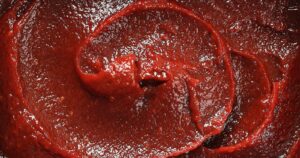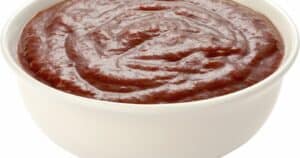As a hot sauce fanatic, have you ever wondered if dousing your food in that spicy goodness can actually help you burn extra calories? I know I’ve thought about it while taking the hot sauce challenge at my favorite Mexican restaurant!
It’s an intriguing idea that simply adding hot sauce to our meals could boost calorie burn. With obesity being such a major health issue, it seems like an easy fix – just grab a bottle of chili-infused magic and the pounds melt away, right?
Well, as tasty as it sounds, the real relationship between hot sauce and calories isn’t so simple. While hot sauce may have some potential benefits related to metabolism and appetite, it’s not a guaranteed quick-fix for weight loss on its own.
In this article, I’ll break down what the science really says about hot sauce, calories, and weight loss. You’ll learn about the potential effects of capsaicin on metabolism, as well as the limitations of relying on hot sauce alone. I’ll also share some tips for using hot sauce as part of an overall healthy lifestyle.
By the end, you’ll have a balanced understanding of how hot sauce may support weight goals, while managing expectations. The heat brings some promising possibilities, but lasting results require more. Let’s
How Hot Sauce May Help Burn Calories
Before looking at the potential effects of hot sauce on metabolism and weight loss, let’s examine how this spicy condiment is made.
The heat and flavor in most hot sauces come from chili peppers. Specifically, hot peppers contain a natural chemical called capsaicin.
When you eat capsaicin, it binds to pain receptors in the mouth which signal the brain that the body is “burning”. This causes a release of endorphins that for chiliheads create satisfaction and pleasure.
It’s this capsaicin that gives hot sauce its potential calorie-burning effects. Here are some of the ways it may support weight loss:
Increasing Metabolism
Some research shows capsaicin can temporarily boost metabolism, the rate at which the body burns calories.
In a review of 20 controlled studies, capsaicin was linked to increasing energy expenditure by approximately 50 calories per day. That equates to about 1.5 pounds lost over a year.
Capsaicin may increase metabolism by raising body temperature and heart rate for a short time after consumption. Think of it like the mild “heat” you feel after eating spicy food.
However, the duration and degree of this thermogenic effect varies significantly by individual and size of dose.
Suppressing Appetite
A few studies have found evidence that consuming capsaicin may help decrease appetite and feelings of hunger.
It may act on key hunger-regulating hormones like ghrelin and glucagon-like peptide-1 (GLP-1) to increase satiety.
This potential appetite-suppressing effect could support weight loss by leading to lower overall calorie consumption.
Again, effectiveness seems very individualized and may depend on capsaicin dosage.
Adding Flavor Without Calories
On its own, hot sauce is very low in calories. Per teaspoon, a typical hot sauce may contain just 5-15 calories.
Adding it liberally can infuse big flavor into dishes for minimal caloric cost. This can prevent overusing higher-calorie condiments like ranch or creamy sauces.
So in theory, by slightly boosting metabolism, controlling hunger cues, and providing low-cal flavor, hot sauce may offer some potential weight loss benefits. But there are also important limitations to consider.
Limitations of Hot Sauce for Weight Loss
While the capsaicin in hot sauce may provide a bit of metabolic edge, relying on heat alone has significant drawbacks:
Not a Major Calorie-Burner
Even in the most optimistic studies, capsaicin only increased daily energy expenditure by 50-75 calories. To put that into context:
- A piece of bread contains around 75 calories
- A banana has approximately 100 calories
So realistically, the capsaicin effect on metabolism is very small and incremental. Hot sauce alone will not result in dramatic calorie burning.
Results Vary by Individual
Every person responds differently to capsaicin for reasons not fully understood. Some may experience a spike in metabolism, while others feel no thermogenic impact at all.
Genetics, tolerance levels, dosage, and frequency of consumption appear to affect individual response.
Possible Adaptation Over Time
Some research indicates the appetite suppression effects of capsaicin may lessen over time as the body adapts to regular consumption.
For example, one study found subjects who consumed capsaicin for 4 weeks stopped feeling as much increased satiety.
Excessive Hot Sauce Can Cause Issues
While spicy foods are fine for most in moderation, consuming extremely large amounts of hot sauce daily could potentially lead to digestive problems in some.
Too much capsaicin can aggravate conditions like GERD or peptic ulcers. As with anything, hot sauce is best enjoyed sensibly.
No Substitute for Lifestyle Changes
At the end of the day, hot sauce alone cannot counteract poor dietary patterns, inactivity, and other drivers of weight gain. It should complement lifestyle changes, not replace them.
So in summary, while hot sauce may provide a modest metabolic nudge, it’s no magic bullet for dropping pounds. Having realistic expectations prevents disappointment!
Next, let’s look at some healthy ways to incorporate hot sauce into your routine that supports weight loss and wellness overall.
Tips for Using Hot Sauce in a Weight Loss Plan
While hot sauce alone won’t shred pounds, it can be a delicious addition to an overall healthy lifestyle. Here are some ways to enjoy the heat as part of a balanced diet and fitness regimen:
Use It To Flavor Low-Calorie Dishes
Dash it on steamed veggies, lean proteins, homemade soups and other nutritious low-cal meals.
Count It as a Condiment, Not a Main Ingredient
Remember, hot sauce complements food rather than replaces it. Don’t drown healthy ingredients under spoonfuls.
Try To Avoid it Close to Bedtime
Capsaicin may disrupt sleep for some, especially in large evening doses.
Stay Hydrated
Drink plenty of non-sugary fluids. Capsaicin can be dehydrating.
Purchase Wisely
Opt for hot sauces without added sugars, excessive sodium, or unhealthy oils.
Practice Portion Control
No need to give up your favorite fiery foods – just enjoy sensible serving sizes as part of your meal plan.
Keep Expectations Realistic
Appreciate hot sauce for its flavor, not its limited effects on calories. Focus on the whole picture.
Pair with Exercise
For best results, make sure to balance hot sauce with regular cardio, strength training, and activity in general.
So don’t write off the hot sauce just yet! With a smart approach, you can still enjoy the heat while pursuing your weight loss goals.
The Bottom Line on Hot Sauce and Calories
Can hot sauce help you burn extra calories and shed pounds? The verdict is…complicated.
The capsaicin in hot peppers offers some promising potential to give your metabolism a mild boost. Early studies also show it may help control appetite and hunger levels.
However, the effects are small and highly variable between individuals. Hot sauce alone is no shortcut to dramatic weight loss.
Use hot sauce sensibly as part of an overall healthy lifestyle for the best chance of sustainable results. Focus on the whole picture of nutrition, portion sizes, and physical activity.
While the calorie-burning powers of hot sauce aren’t a magic solution, that won’t stop me from generously spicing up my meals! When used wisely, the heat brings delightful flavor that can be part of a healthy regimen.
So keep enjoying your favorite hot sauces in moderation as a complement to balanced nutrition and exercise. Consistency with lifestyle changes is key – the sauce alone can’t do all the work for you.
What’s your favorite way to get fiery flavor without derailing your diet? Let me know in the comments below!
FAQs About Hot Sauce and Calories
Still have some lingering questions about hot sauce, spicy food, and calories after reading this article? Here I’ve tackled a few additional frequently asked questions on this fiery topic:
Does spicy food increase your basal metabolic rate?
There is some evidence that capsaicin can temporarily increase metabolic rate, but only by a small amount. The dosage and frequency needed to sustain this effect long-term is unknown. Overall diet and exercise still play a much bigger role.
What’s better for burning calories – fresh hot peppers or hot sauce?
Both contain capsaicin, so the effects should be similar. Some studies showing appetite and metabolism benefits have used capsaicin supplements. In food form, the amount of capsaicin can vary greatly depending on the pepper variety and serving size.
Is hot sauce healthier than other condiments for weight loss?
Most hot sauces have minimal calories and are relatively low in sodium compared to oil-based dressings and creamy condiments. From a pure calorie standpoint, hot sauces are one of the healthier condiment options.
Can you build up a tolerance to capsaicin’s effects?
Yes, regular or heavy consumers of spicy foods may become desensitized to capsaicin over time. This could potentially decrease any thermogenic effects. Sporadic consumption may be more beneficial.
Will eating hot sauce negatively affect my sleep?
Some people do report feeling hot or restless after consuming very spicy food close to bedtime. Limiting large amounts of hot sauce or peppers a couple hours before sleep is a good precaution.





